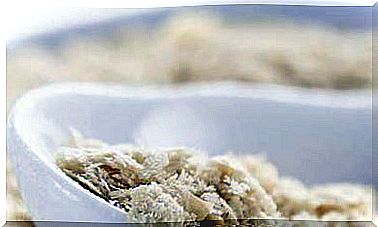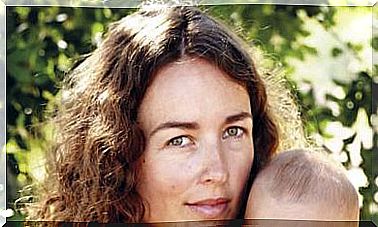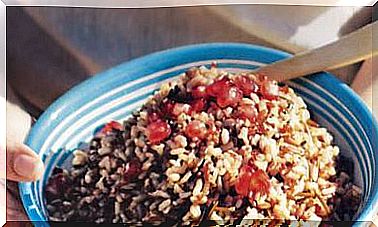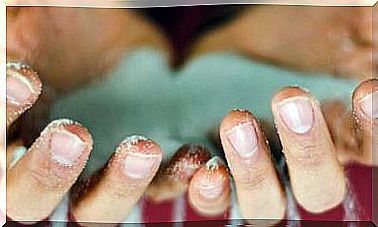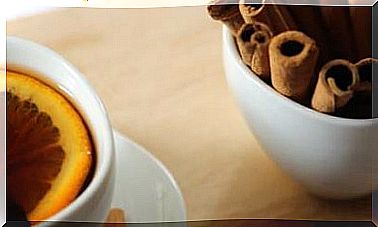Keys To Eliminate Toxins And Nourish Your Cells
Get rid of toxins accumulated in your body with a nutritious diet that enhances the purifying function of the liver and intestine.

Human beings live longer than just a few decades ago. But … what do we have to do so that in the added years of life the ailments do not accumulate, but rather that they constitute a stage full of experiences and personal development? Economic progress and health improvements have allowed a gradual increase in longevity. At the beginning of the last century, infections caused the majority of deaths. Despite the incidence this year of the coronavirus, people are currently dying from chronic, degenerative and disabling diseases, many of them linked to an inadequate diet and unhealthy lifestyles.
We live in the age of great hopes, often proclaimed by science, which seem to open up a wide range of alternatives to lengthen and improve the quality of life. Synthetic drugs, cosmetic operations, anti-aging treatments, and even “miracle products” are offered as the panacea for coping with aging and maintaining health. However, little is done to educate the population, even from school, on how to take care of the body, what to do to reduce the impact of toxic substances to which we are exposed on a daily basis, and what it means to have nutritional deficiencies and imbalances.
Start by cleansing the liver
A key to health is wisely meeting the body’s detoxification needs as well as its nutritional needs.
The liver works like a small laboratory: it secretes bile, filters the blood, and cleanses it of bacteria, toxins, antigen-antibody complexes, heavy metals, and other toxic molecules. All these functions take place in two phases.
- The so-called Phase I or precise activation of enzymes called cytochrome P450, as well as various cofactors (vitamins, trace elements and amino acids). Its mission is to neutralize toxins and transform them into substances that can be excreted by the kidneys or turn them into molecules suitable for being metabolized in Phase II. A secondary effect of this activity is the production of free radicals; therefore, it is important that the body has antioxidants.
- During Phase II or conjugation, protective compounds are generated that bind to toxins that have not previously been eliminated and facilitate their expulsion.
A good diet must provide the molecules that the liver needs. A deficit of these substances hinders the detoxification process and leads to dysfunctions and diseases. But what are these vital nutrients for liver detoxification?
- Phase I requires vitamins C, E and especially those of group B; the trace elements manganese, magnesium, zinc, molybdenum, copper and selenium; and antioxidants such as resveratrol, anthocyanins, and glutathione.
- In Phase II, the amino acids methionine, cysteine, taurine, glycine and glutamine are involved; vitamins C, B6, B9 and B12, as well as trace elements of Phase I.
To achieve all these elements that contribute to detoxification you can resort to a variety of plant foods:
- Vitamins, minerals, enzymes and essential oils: in broccoli, radishes, leeks, onions and garlic.
- Cynarin: artichokes and thistles provide this substance that stimulates the production of bile and the elimination of waste substances. • Polyphenols and anthocyanins: in cherries, medlars, grapes and, in general, red fruits.
- Glutathione: in spinach, watermelons, grapefruits, asparagus, avocados, pumpkins, crucifers, nuts and garlic.
- Vitamin E: two tablespoons of raw extra virgin olive oil offer a complementary dose of this nutrient that supports the proper functioning of the liver.
- Methionine and lysine: in seeds, nuts and legumes.
- Vitamins of group B: in whole grains, legumes and beer yeast.
Take care of the intestinal ecosystem
The intestine participates together with the liver in the detoxification processes, in addition to synthesizing nutrients, neurotransmitters and antimicrobial peptides. Its proper functioning depends on the state of the mucosa that lines the walls of the intestine, the immune cells (Peyer’s patches) and the microbiota.
When the intestinal ecosystem has an inadequate microbiota (dysbiosis), the mucosa is irritated and permeable, or the immune system is weakened, they play a fundamental role in the appearance of numerous pathologies.
There are two main types of fibers that improve the state of the microbiota:
- The insolubles of whole grains, fruits and vegetables, which stimulate intestinal transit;
- The soluble ones, which abound in artichokes, bananas, garlic, endives, onions, etc. and they promote the development of bifidobacteria and lactobacilli (they also reduce the glycemic impact of food and favor the absorption of nutrients).
Meanwhile, probiotics (bacteria), found in sauerkraut, miso and fermented foods generally regulate immunity, compete with potential pathogens and reinforce the intestinal barrier.
Also take care of your emotional balance
- Mood influences the functioning of the liver and intestine. Trust and nurturing relationships are a great help.
- Keep a positive attitude towards life. Routine, frustrated work expectations, work and family conflicts can undermine health. Always look for the positive side of situations.
- Create a pleasant environment around you. Living in a harmonious home helps to maintain the balance of the entire organism.
- Spend time each day doing what you like or simply resting, breathing deeply and listening to your own body.
- Go on excursions periodically that allow you to get in touch with the sun, air, water and earth, as this will help you release tension and give you vitality.

